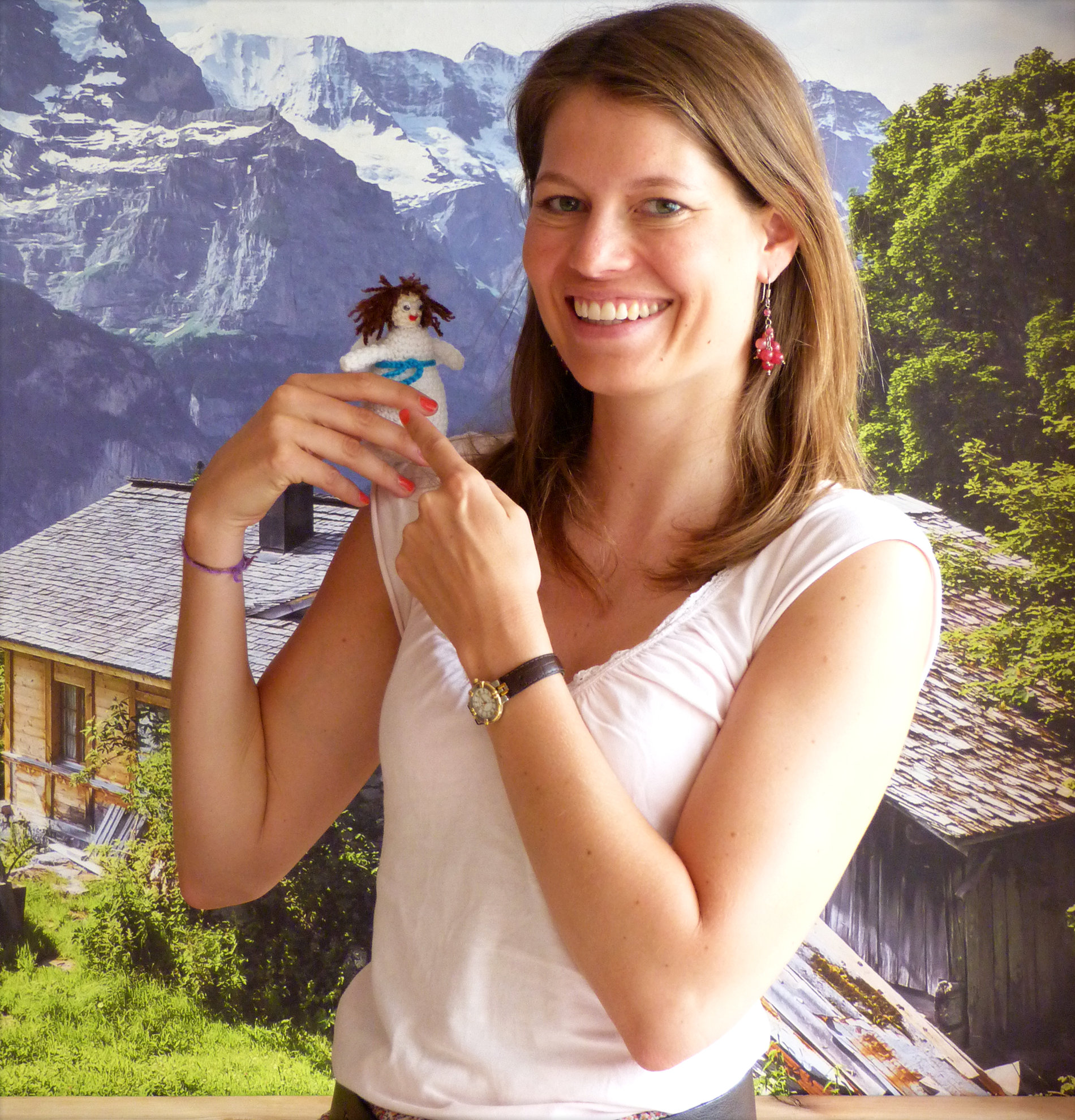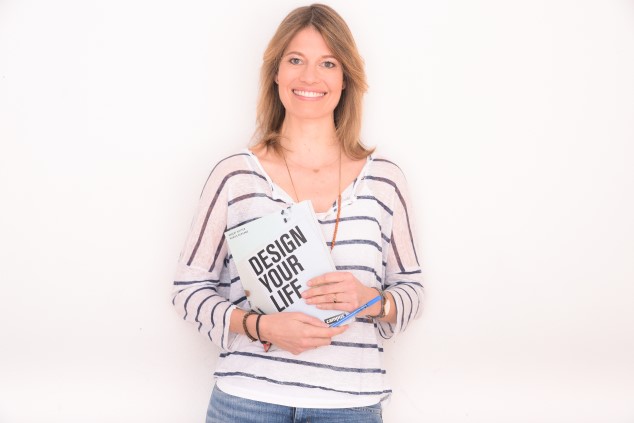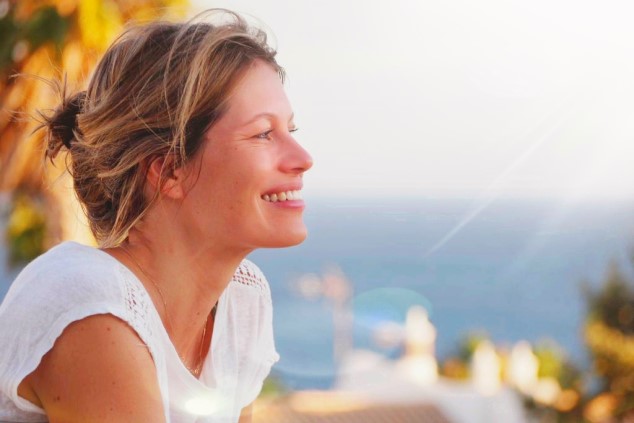In the “Alumni” series, we talk to former team members about their career change and how working at InterNations has influenced them.
In this first installment, we’re introducing Lena, who left InterNations in July 2018 to start her own business.

What was it you used to do at InterNations, and for how long did you work here?
I worked for InterNations for almost six years: Starting in 2012, I set up our community outreach program, now called Changemakers. I introduced a new kind of InterNations Group in about 45 cities worldwide, where our members can give something back to their community by donating time and talents to people in need.
First, I had to select the cities where we wanted to open these groups and recruit the Consuls who run and moderate them. I helped them choose non-profit organizations — for example, supporting people with disabilities, children in hospital, or homeless people — and come up with volunteering activities for a good cause.
I’d already gained some experience in the non-profit sector, having worked in marketing and fundraising at SOS Children’s Villages, an organization that provides alternative families for children without adequate parental care, and at Horizont e.V., a local NPO that offers housing to homeless women with kids. So, I had this background to draw upon.
After four years, I switched jobs within InterNations and became the Engagement Lead in our Learning & Engagement Team. Here, I helped to establish the Community Team Groups in our biggest communities: they are the go-to place for our Ambassadors, who host our community-wide events, and our Consuls to get tips and inspiration from, to share experiences and exchange ideas.
We also organized Community Team Talks in various cities, from Zurich to London to Milan, meeting Consuls and Ambassadors in person, finding out what their wishes and expectations are, and hosting workshops. In March 2018, we invited Consuls from ten Community Team Groups to our first CTG Forum here in Munich.

Why did you decide to leave InterNations? What are you doing now?
I really, really enjoyed those six years. But I wanted to be more flexible than a regular employee, have complete control of my work-life balance, and do something closely connected to my personal passions.
Therefore, I’ve just started my own business. It combines coaching with yoga and hiking. I already became a certified yoga teacher while working at InterNations, and I’m now training as an official hiking guide: while I’m originally from Hamburg, I love the mountains and have been a member of the German Alpine Club for years.
My goal is to offer people the opportunity to relax during nature retreats and to help them live their life in a more satisfying and fulfilling way. I’ve obtained further qualifications in stress management and burnout prevention, and I’ve just complete my training to become a life design coach.
“Life design” means taking a closer look at people’s work-life balance, interests, and strengths to find out how to support them in making some necessary changes. This approach is based on the “design thinking” method. It’s normally used to innovate products and services within business contexts, but life design applies this process to people. The goal is — after collecting lots of ideas for different scenarios you could imagine for your new life — to pick some of them, create “prototypes” for what you want to change, test them, and then put your ideas into action.
What I did, for example, was to host my first yoga and hiking retreat while I still had my nine-to-five job at InterNations. This could have gone horribly wrong, but it went very well, confirming my business idea might work.

How did it feel to quit your job and become your own boss?
On the one hand, it’s been incredibly liberating. Once you leave the familiar office environment behind, it’s suddenly easy to come up with new ideas, and you get lots of new impulses.
It’s like having a blank canvas to paint whatever you want, which feels very inspiring. On the other hand, nobody tells you what to paint or when to stop painting. It can be rather difficult to come up with your own structures and routines. At least, this was the biggest challenge for me.
I was also a bit afraid of working on my own, but it works perfectly fine. I keep in touch with lots of people, and I really enjoy that. It’s super-important to have a large network and the right kind of support.
I benefited from a free coaching for entrepreneurs offered by the Federal Employment Agency, and I can always rely on my personal network: for example, I know several lawyers if I need legal advice; a friend of mine also started her own business recently, and I’ve talked to former colleagues from InterNations about topics like marketing or social media. It’s essential to exchange ideas and information with others.
I’m also very grateful for my business degree and marketing background, as I need to build a customer base — develop a marketing strategy, write a plan, define my target groups, select different channels, and so on. It probably helps that I’m an extrovert and rather enjoy talking, networking, and joining various communities!

What have you learned from working at InterNations? How does it benefit you now?
For my two InterNations jobs, I had to enter unchartered territory and tackle new challenges, which forced me to be very creative and very strategic, very goal-oriented, at the same time. I learned a whole lot from that, like trying out new things and adapting them if they don’t work as expected. For example, I had to develop roadmaps for my projects and aim for certain key performance indicators.
I also profited greatly from my regular meetings with Malte, one of the founders and co-CEOs of InterNations: For a long time, I was working closely with him. I had a lot of freedom at InterNations, but he provided the necessary guidance as well.
Setting up the workshops for our Community Team Talks with my colleague Anastasiya, the Learning and Engagement Lead, also taught me something very important: What you have in mind is all well and good, but sometimes even the best-laid plans don’t work out. Being flexible, improvising, and knowing how to change a plan according to various circumstances are invaluable skills.
Also, I think in no other company I learned so much about “people skills” as in my job at InterNations: getting a feeling for different kinds of people, relating to them, figuring out what they want and how they express their wishes, or how to show patience with others, even when they are angry or frustrated. Especially with our international audience, I got to know people from all walks of life, from different countries, cultures, and age groups, with very different personalities. In community management, you deal with all those people, all the time. As my new career is all about people, this has been extremely helpful.
Last not but not least, I was also a part of the first InterNations brand management project. I remember a lot from that time now that I‘m creating my personal brand!

Do you sometimes miss working at InterNations? Why?
While working on my own works very well, I sometimes miss the opportunity to discuss things with my colleagues, or just to find out what someone from another department does. I really liked that InterNations was pretty small when I started, and I always found it interesting to see what the other teams were working on and what their goals were. It helps to put your own work into perspective and get the bigger picture, and you might draw some inspiration from it.
Taking the actual step to leave and quitting for real was probably the toughest thing. There were many things I loved about my job, and I was really struggling with my decision.
My last days at work happened to coincide with a team trip to Spain: I think I timed it pretty well, but it was also a very intense experience, very emotional. It was sometimes hard for me to listen to Malte and Philipp’s speeches, participate in workshops, or sit through presentations, thinking, “Oh my god, I’m leaving! Is this really the right thing to do?”
Since I’d decided to take a short vacation in Spain before kicking off my new career, the end of the trip felt rather symbolic: I will never forget that moment when I was standing on the Barcelona waterfront with my suitcase and my “guitalele”. The night before, we’d been singing English and German songs on the beach together — and now everyone but me got on the bus to the airport. All the others were going back to InterNations, while I was walking off into my new life.
I very much enjoyed working in an international environment, so I miss that too. Right now, I offer my retreats and courses only in German, but I’m planning to introduce English-language workshops next year. Quite a few people have asked me about this — including some of my former colleagues from InterNations — and there’s definitely a market for it. My career will get back that international touch!

Do you have any role models for your life and especially your career?
As a teen, I kind of wanted to be like Amanda Woodward when I grew up — you know, Heather Locklear’s character from Melrose Place. I didn’t even like her personality, as she was this stereotypical soap opera villain; however, she was also a high-powered advertising executive in charge of creative marketing campaigns, and teenage me found this very impressive. So maybe that’s why I went into marketing…
More seriously, though, I have always wanted to be my own boss and create something of my own. My parents are both self-employed tax consultants, and I saw how independent this made them, though I knew I preferred doing something more creative than tax consulting.
My late grandmother was another important role model — not just because she also ran the family business. My grandma also taught me the importance of keeping a positive attitude, having lots of drive and enthusiasm, and embracing change.
After my grandpa died, she decided to move into a retirement home — and loved it. She described it as “living in a student dorm for the elderly” and made the most of it, using it as an opportunity to socialize and keep active, doing Nordic walking or spending afternoons at the spa. She even got a new boyfriend when she was 84, and they were a couple until she passed away at the age of 93.
Her example has shown me that it’s never too late for a fresh start, and this is something to always keep in mind.
Photo credits: InterNations / iStockphoto / Lena Widmayer / Pexels
Amanda Woodward from Melrose Place. I totally get that. She was a badass but not very likeable. It’s kind of like marketing itself. It works and can even be compelling all the while people know that it’s just a game that’s being played and isn’t authentic.